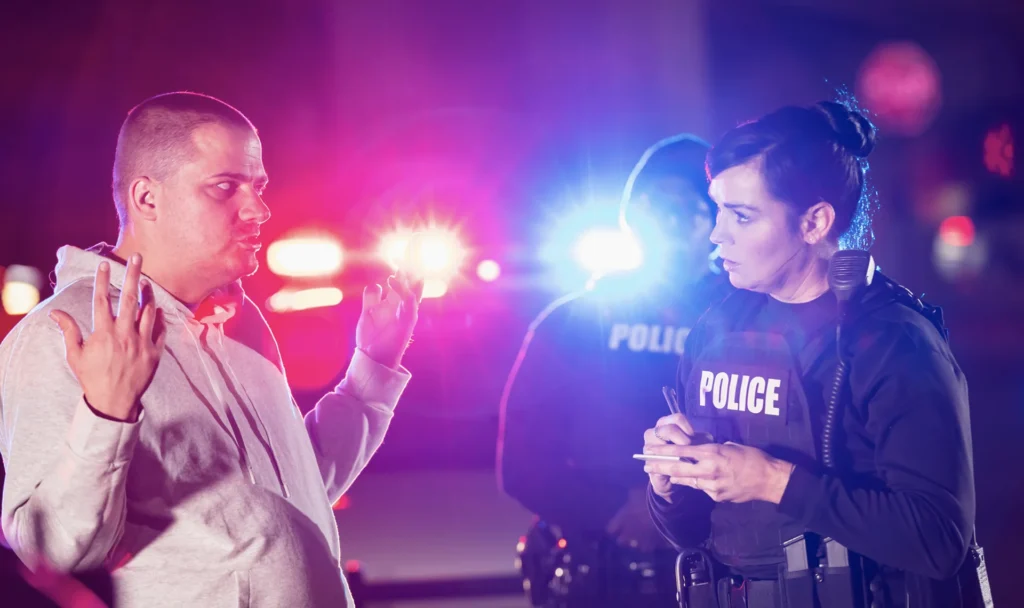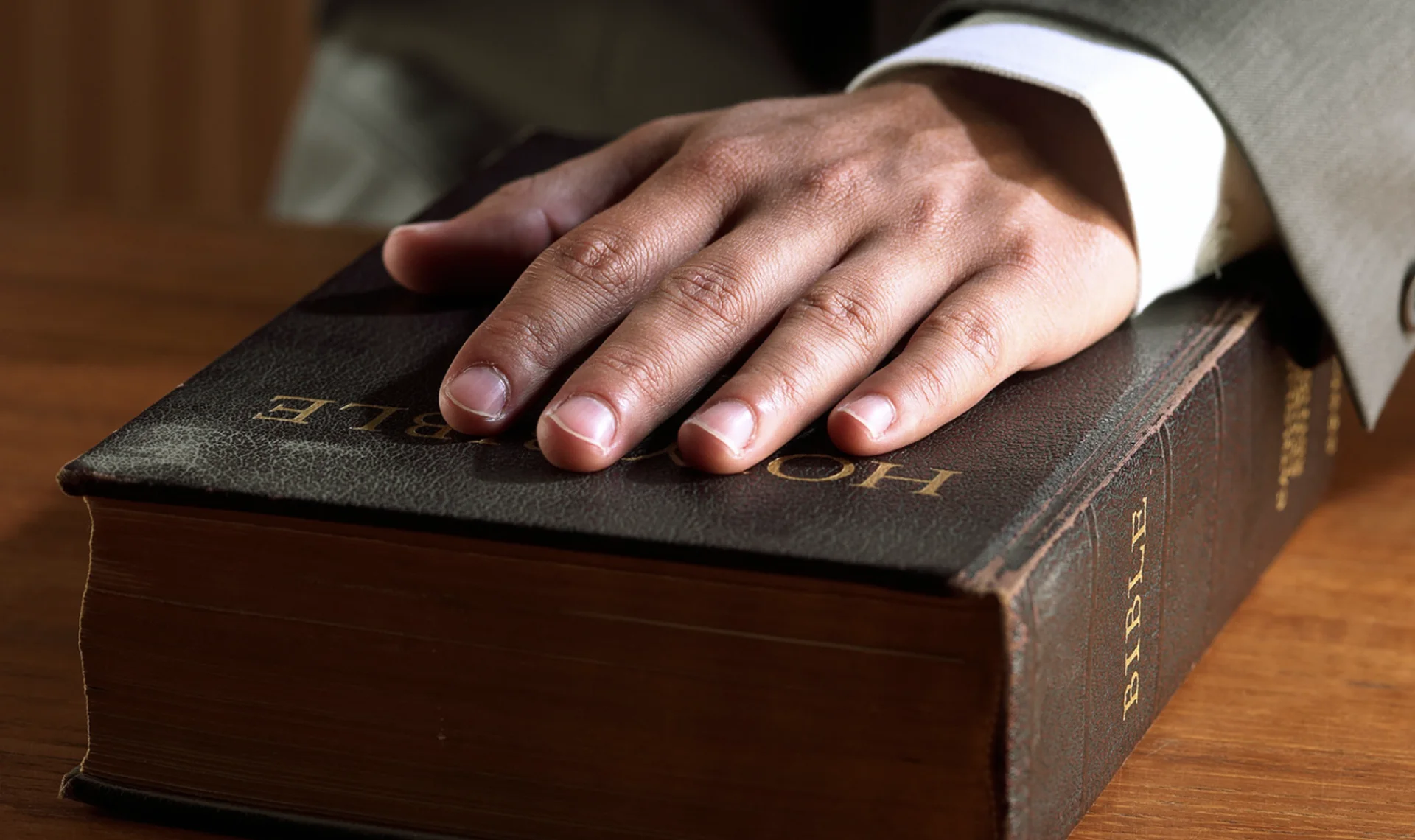Introduction
When you or someone you love has been injured due to someone else’s negligence, the path to justice can feel overwhelming. Personal injury trials are not just about recounting what happened—they’re about proving it in a way that convinces a judge or jury. That’s where expert witnesses step in.
Expert witnesses play a pivotal role in personal injury cases, offering professional insights that help clarify complex details and strengthen claims. Whether it’s a doctor explaining the severity of an injury, an engineer analyzing the mechanics of an accident, or an economist estimating future financial losses, these experts provide the evidence and credibility needed to support your case.
At Hurt Aid, we understand the challenges injury victims face. Navigating the legal system can be daunting, especially when dealing with the aftermath of an accident. That’s why we’re here to help—connecting you with trusted attorneys and resources so you can focus on your recovery while professionals handle the legal complexities.
This article will guide you through the crucial role of expert witnesses in personal injury trials, showing how their testimony can turn intricate technical details into compelling evidence. Whether you’re seeking justice for yourself or researching on behalf of someone else, understanding this aspect of personal injury law can make all the difference in the outcome of a case.
What Are Expert Witnesses?
In personal injury trials, the facts often go beyond what’s visible on the surface. A car accident might seem straightforward, but proving fault could require a detailed analysis of speed, road conditions, and vehicle mechanics. Similarly, showing the extent of an injury isn’t always as simple as pointing to medical bills—it may involve demonstrating how those injuries impact a person’s ability to work or enjoy life. This is where expert witnesses become invaluable.
An expert witness is a professional with specialized knowledge, training, or experience in a particular field. Their role is to provide impartial, factual insights that help judges and juries better understand the evidence presented in a case. They bridge the gap between highly technical or scientific concepts and the everyday understanding of those deciding the case.
Types of Expert Witnesses in Personal Injury Cases
Depending on the nature of the injury and the specifics of the case, various types of experts may be called upon, including:
- Medical Experts: Doctors, surgeons, or therapists can explain the severity of injuries, treatment plans, and long-term health impacts.
- Accident Reconstruction Specialists: These professionals analyze accidents to determine how they occurred and who was at fault, often using technology to recreate the scene.
- Economists or Financial Experts: They calculate the financial losses resulting from the injury, including lost wages, future earnings, and medical expenses.
- Engineers or Safety Consultants: Often used in workplace or product liability cases, these experts evaluate whether safety standards were breached.
- Mental Health Professionals: Psychologists or therapists may testify about emotional trauma, such as anxiety, depression, or post-traumatic stress disorder (PTSD), stemming from the incident.
These experts don’t just present their findings—they make complex details relatable and understandable for non-experts, ensuring that the critical elements of a case are clearly conveyed.
Understanding what expert witnesses bring to a personal injury case is the first step to appreciating their significance. In the next section, we’ll delve into why their contributions are so crucial to achieving justice and securing fair compensation.
Why Are Expert Witnesses Important in Personal Injury Trials?
In personal injury trials, evidence alone often isn’t enough. The complexity of injuries, the circumstances of an accident, or the long-term impact of negligence can be difficult for a jury or judge to fully grasp without expert input. Expert witnesses play a pivotal role in breaking down these complexities, offering clarity, credibility, and persuasive evidence that can make or break a case.
Simplifying Complex Information
Many personal injury cases hinge on details that are highly technical or scientific. For example:
- Medical Evidence: A surgeon can explain how an injury occurred and why it has lasting consequences, providing a clearer picture than medical records alone.
- Accident Analysis: An accident reconstructionist can show how an accident unfolded, using diagrams or digital simulations to explain factors like speed, impact angles, or visibility.
By translating these complexities into simple, understandable language, expert witnesses help the court see the case from a more informed perspective.
Establishing Credibility
Juries and judges often rely on expert testimony because of its objectivity. Unlike the plaintiff or defendant, who have a vested interest in the case, expert witnesses are neutral parties. Their qualifications and expertise lend weight to their opinions, making their testimony a trusted resource in determining the facts.
For instance, a medical expert who has treated numerous cases of similar injuries can provide insights into:
- The severity of the injury.
- The treatment required.
- The likelihood of full recovery—or lack thereof.
This impartiality helps juries feel confident about their decisions, knowing they are supported by credible, professional evaluations.
Providing Evidence of Damages and Liability
One of the most critical roles expert witnesses play is quantifying damages and proving liability. This includes:
- Demonstrating the extent of physical and emotional harm.
- Establishing the defendant’s responsibility for the accident.
- Estimating future costs related to the injury, such as ongoing medical care or reduced earning potential.
For example, an economist can provide detailed calculations to show how much income a victim might lose over their lifetime due to a disability caused by the injury. This tangible evidence can be critical in persuading the court to award fair compensation.
Expert witnesses don’t just add weight to a personal injury claim—they help construct a narrative that the court can understand and believe. In the following section, we’ll explore how these professionals contribute at different stages of a case, from pre-trial preparation to courtroom testimony.
The Role of Expert Witnesses at Different Stages of a Personal Injury Case
Expert witnesses are not only valuable during the trial itself—they play a critical role throughout the legal process, helping to build, strengthen, and present the case at various stages. Here’s a closer look at how they contribute from start to finish.
1. Pre-Trial: Building a Strong Case
Before a case ever reaches the courtroom, expert witnesses assist attorneys in preparing the groundwork. This includes:
- Analyzing Evidence: Experts review case details, such as medical records, accident reports, or workplace safety protocols, to identify key factors.
- Providing Reports: They create detailed professional reports that outline their findings in clear, factual terms. For example, a medical expert might document the progression of an injury and its long-term impact on a person’s life.
- Case Strategy: Attorneys often consult with experts to shape their legal strategy, determining the strongest arguments to present and identifying potential weaknesses the opposing side might exploit.
This preparation ensures that the case is as compelling and well-supported as possible by the time it goes to trial.
2. During Trial: Presenting Evidence and Persuading the Court
In the courtroom, expert witnesses take center stage, presenting their findings and opinions directly to the judge and jury. Their contributions include:
- Testifying Under Oath: Experts explain their conclusions in a way that is both factual and relatable. For example, an accident reconstructionist might use diagrams or simulations to show exactly how an accident occurred.
- Clarifying Technical Details: Juries often consist of individuals with little to no background in fields like medicine, engineering, or finance. Experts help bridge this gap by breaking down technical information into understandable terms.
- Answering Questions: During cross-examination, experts defend their findings, reinforcing the credibility of their testimony and the case itself.
Expert testimony often becomes one of the most memorable and impactful aspects of a trial, as it helps juries visualize and comprehend the real-world implications of the evidence.
3. Post-Trial: Contributing to Settlement Negotiations
Even after the trial concludes, expert witnesses can continue to play a role in achieving justice. For example:
- If a verdict is appealed or disputed, their testimony may be revisited during settlement discussions or further legal proceedings.
- Experts can help attorneys calculate fair settlement amounts based on their analysis of damages, ensuring that victims receive appropriate compensation.
By providing an unbiased, professional perspective, expert witnesses help create a foundation for negotiations, often encouraging a resolution without the need for prolonged litigation.
At every stage, the input of expert witnesses enhances the credibility, clarity, and strength of a personal injury case. In the next section, we’ll examine the specific types of personal injury cases that commonly rely on expert testimony and why their insights are so essential in these situations.

Types of Personal Injury Cases That Commonly Require Expert Witnesses
Not all personal injury cases require expert witnesses, but many benefit significantly from their specialized insights. Below are the types of cases where expert testimony often plays a crucial role, along with examples of how their contributions can make a difference.
1. Car Accidents
Car accidents are one of the most common types of personal injury cases, but proving fault or demonstrating the full extent of injuries often requires expert input.
- Accident Reconstruction Experts: These specialists analyze skid marks, vehicle damage, and road conditions to determine how the accident occurred and who was at fault.
- Medical Experts: They explain the injuries sustained in the crash, their severity, and the long-term effects on the victim’s life.
- Mental Health Professionals: In cases involving emotional trauma, such as PTSD after a serious crash, these experts can illustrate the psychological toll of the accident.
2. Workplace Injuries
Workplace injuries often involve disputes about employer negligence, safety standards, and workers’ compensation. Expert witnesses help establish liability and quantify damages.
- Safety Consultants: They assess whether workplace safety protocols were followed or if the conditions were hazardous.
- Vocational Experts: These professionals evaluate the victim’s ability to return to work and calculate lost earning capacity.
- Medical Experts: They provide insight into the nature of the injuries and the necessary treatment, which can include future rehabilitation costs.
3. Medical Malpractice
Medical malpractice cases are highly complex and almost always require expert testimony to evaluate whether a healthcare provider breached the standard of care.
- Medical Specialists: These experts review medical records and procedures to determine if a healthcare provider acted negligently.
- Life Care Planners: They calculate the long-term costs of living with a medical injury, including therapy, medication, and personal care.
For instance, a patient harmed by a surgical error might rely on a surgeon to testify about how the mistake deviated from accepted practices.
4. Slip and Fall Accidents
Proving fault in slip and fall cases often requires showing that the property owner failed to address dangerous conditions.
- Safety Consultants: They analyze the environment where the fall occurred, such as uneven flooring or inadequate signage, to determine if it violated safety standards.
- Medical Experts: They explain the injuries caused by the fall and the associated recovery process.
- Economists: These professionals calculate financial losses, such as medical expenses and missed work, stemming from the accident.
5. Product Liability Cases
When a defective product causes harm, expert witnesses help demonstrate how the product’s design or manufacturing led to injury.
- Engineers: They examine the product to identify design flaws or safety issues.
- Consumer Safety Experts: They provide insights into industry standards and whether the product met those requirements.
- Medical Experts: They testify about injuries caused by the product, such as burns from a malfunctioning appliance or poisoning from a contaminated drug.
Why Expert Witnesses Are Essential Across These Cases
In all these scenarios, expert witnesses not only provide clarity but also substantiate claims, helping victims prove:
- The severity of their injuries.
- The negligence or fault of the responsible party.
- The financial and emotional impact of the accident on their lives.
By bridging the gap between technical evidence and legal arguments, expert witnesses ensure that injury victims have the strongest possible case when seeking justice. In the next section, we’ll discuss how to choose the right expert witness to support your personal injury claim.
How to Choose the Right Expert Witness
Selecting the right expert witness for a personal injury case is a critical decision. The credibility, expertise, and communication skills of an expert can significantly impact the strength of your claim. Here’s what to consider when choosing an expert witness.
1. Qualifications and Credentials
The most important factor is the expert’s qualifications. The witness should have:
- Relevant Education: Degrees or certifications in their field of expertise.
- Professional Experience: A track record of applying their knowledge in real-world situations, such as treating patients, conducting research, or designing safety protocols.
- Licensing or Certification: Proof that they are recognized as professionals in their area of expertise (e.g., licensed physicians, certified engineers).
An expert’s credentials not only establish their authority but also make their testimony more persuasive to judges and juries.
2. Experience With Similar Cases
It’s essential to choose an expert who has worked on cases similar to yours. For example:
- A medical expert with experience in spinal cord injuries is more suited for a case involving paralysis than a general practitioner.
- An accident reconstructionist who has analyzed hundreds of car crashes can provide deeper insights than someone new to the field.
Experts with a history of testifying in personal injury cases are also familiar with courtroom procedures and cross-examinations, making them more effective witnesses.
3. Communication Skills
Even the most qualified expert won’t be effective if they can’t explain their findings clearly. Look for an expert who:
- Speaks Plainly: Can simplify complex concepts for a jury or judge without losing accuracy.
- Engages Effectively: Maintains confidence and composure during testimony, even under cross-examination.
- Uses Visual Aids: Incorporates diagrams, models, or simulations to help illustrate points.
A skilled communicator ensures the court understands the significance of their testimony, making it more impactful.
4. Impartiality and Professionalism
Expert witnesses must remain objective and unbiased. Their role is to provide factual insights, not advocate for one side. A credible expert should:
- Present findings based on evidence, not personal opinion.
- Maintain professionalism throughout the legal process.
- Avoid exaggeration or speculation in their testimony.
Courts often scrutinize expert witnesses for potential biases, so impartiality is essential for their testimony to hold weight.
5. Collaboration With Attorneys
The expert should work closely with the attorney to align their testimony with the case’s strategy. This collaboration involves:
- Sharing Insights: Helping the attorney understand technical aspects of the case.
- Preparing for Testimony: Reviewing key points and anticipating questions from opposing counsel.
- Tailoring Evidence: Focusing on the most relevant information to strengthen the argument.
Attorneys often have established networks of trusted experts, which can make the process of finding the right witness smoother.
Challenges and Limitations of Expert Witnesses
While expert witnesses are invaluable in personal injury trials, their involvement is not without challenges. Understanding these limitations can help you and your legal team navigate potential hurdles effectively, ensuring their testimony strengthens your case.
1. Cost of Hiring Expert Witnesses
One of the most significant challenges is the cost associated with expert witnesses. Their fees can include:
- Hourly Charges: For analyzing evidence, preparing reports, and participating in legal proceedings.
- Testimony Fees: Compensation for appearing in court.
- Travel and Other Expenses: Costs incurred if the expert needs to travel or conduct specialized analyses.
Although expert witnesses can be expensive, their insights often justify the investment by significantly increasing the likelihood of a favorable outcome. Many personal injury attorneys work on contingency, meaning they cover these upfront costs and recoup them from the settlement or verdict.
2. Potential for Bias Perception
Even if an expert is entirely objective, opposing counsel may attempt to discredit them by suggesting bias. Common strategies include:
- Highlighting that the expert was paid for their testimony.
- Questioning their past affiliations or case history.
- Undermining their qualifications or methods.
To counter this, it’s crucial to select an expert with impeccable credentials and a history of providing balanced, fact-based testimony. Their ability to remain composed and professional under cross-examination can further reinforce their credibility.
3. Legal Scrutiny and Admissibility Standards
Expert testimony must meet strict legal standards to be admissible in court. For instance:
- The Daubert Standard (used in many states) requires experts to base their testimony on reliable principles and methods.
- Relevance and Helpfulness: The testimony must directly relate to the case and assist the court in understanding the evidence.
If an expert’s findings are deemed speculative or irrelevant, they may be excluded from the trial, weakening the case. To avoid this, attorneys must thoroughly vet the expert’s qualifications and ensure their analysis aligns with legal requirements.
4. Complexity of Testimony
While expert witnesses simplify technical details, some cases are so intricate that even a skilled communicator might struggle to make the information fully accessible. For example:
- Highly technical fields, such as biomechanical engineering or medical device failures, may require extensive explanation.
- Juries may lose focus if the testimony becomes too detailed or dense.
Attorneys can help mitigate this by working with experts to streamline their testimony, focusing on the most critical points and using visual aids to enhance understanding.
5. Potential for Contradictory Testimony
In many cases, both sides will present their own expert witnesses, who may offer conflicting opinions. For example:
- A plaintiff’s medical expert may argue that an injury is permanent, while the defense’s expert may claim a full recovery is possible.
- An accident reconstructionist for the plaintiff might assert that the defendant was speeding, while the defense’s expert argues otherwise.
This “battle of the experts” can confuse the jury, making it harder for them to determine whom to believe. Choosing a highly credible expert with a clear, well-supported analysis can give your side an advantage in such scenarios.
How to Overcome These Challenges
- Work With Experienced Attorneys: A knowledgeable attorney knows how to select, prepare, and present expert witnesses effectively.
- Invest in Quality Experts: While costs may be high, a credible and skilled expert can make a significant difference in the case’s outcome.
- Prepare Thoroughly: Both the attorney and the expert should anticipate challenges, from cross-examinations to admissibility concerns, and address them proactively.
By understanding the potential challenges associated with expert witnesses, you can work with your legal team to address them strategically. In the final section, we’ll recap the importance of expert witnesses and how Hurt Aid can support you in building a strong personal injury case.
Conclusion
Expert witnesses play a critical role in personal injury trials, providing clarity, credibility, and compelling evidence that can make all the difference in achieving justice. Whether it’s a medical professional explaining the long-term impact of an injury, an accident reconstructionist pinpointing fault, or an economist calculating financial losses, their insights help build a strong, persuasive case.
While challenges such as costs, legal scrutiny, or conflicting testimonies may arise, choosing the right expert and preparing effectively with an experienced attorney can help you overcome these hurdles. The key is finding experts who are not only highly qualified but also skilled communicators capable of translating complex information into terms a jury can easily understand.
Justice and fair compensation start with understanding your rights and options. Let Hurt Aid guide you through the process, so you can focus on recovery while experienced professionals handle the complexities of your claim. Reach out today to take the first step toward securing the support you need.





